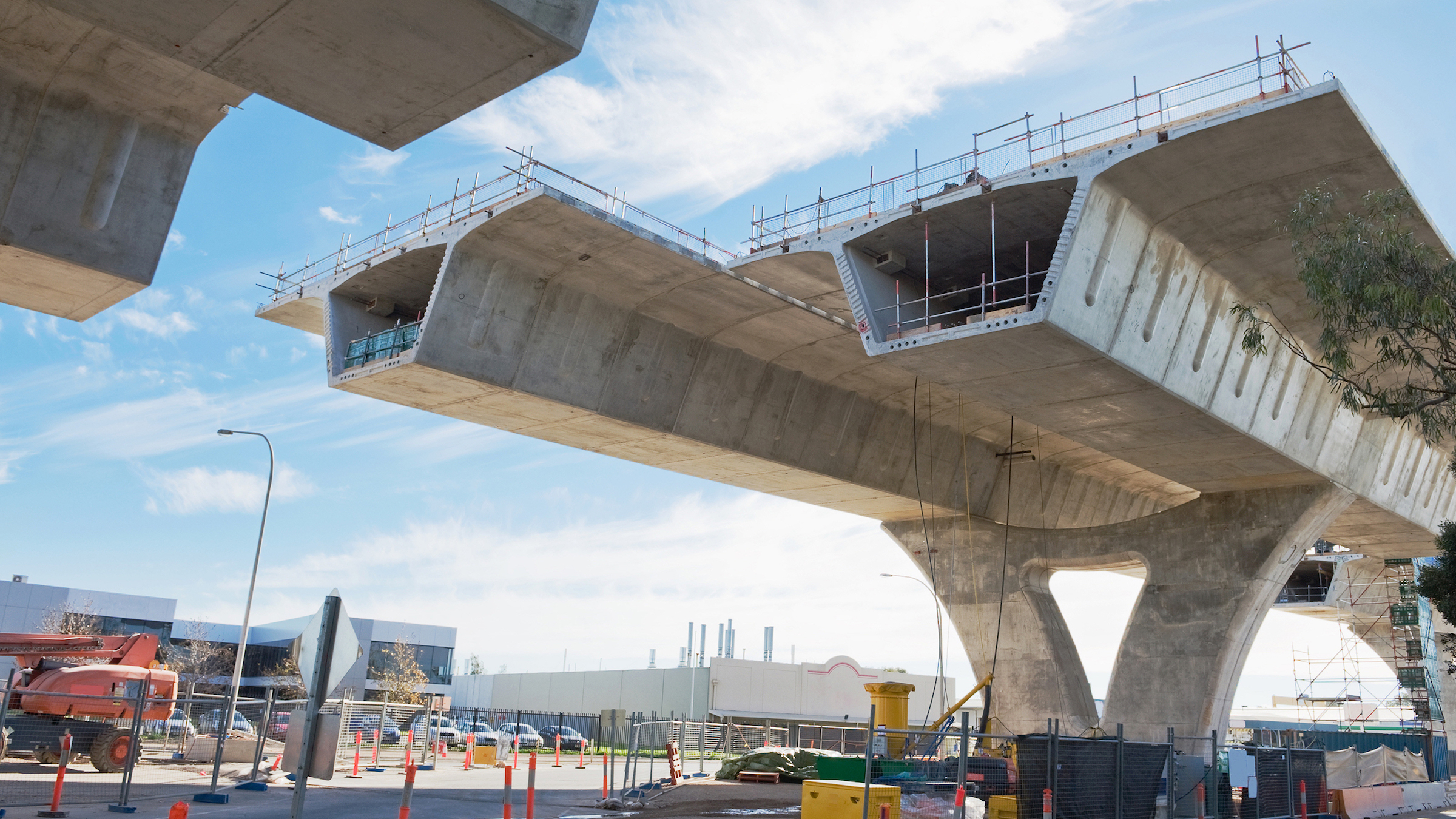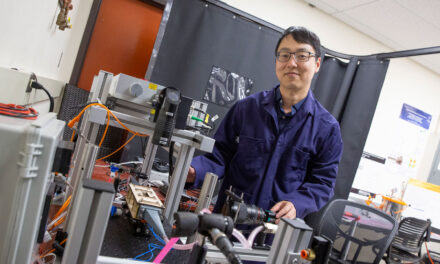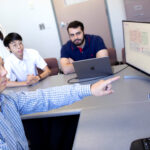
ASU center recognizes local leaders in sustainable infrastructure

The Arizona Department of Transportation and Gannett Fleming, Inc. won awards from the Metis Center at ASU for optimizing highway water pump maintenance and constructing the second phase of the Sky Train at the Phoenix Sky Harbor International Airport. Image courtesy of Shutterstock
Structures age as the needs of cities change, so developing sustainable infrastructure is paramount to address the social, environmental and technological challenges faced by a rapidly growing population.
The Metis Center for Infrastructure and Sustainable Engineering at Arizona State University seeks to use research, teaching and outreach to help reshape the design process for sustainable and resilient infrastructure.
“The center has a number of faculty members and researchers who focus on issues of positioning infrastructure for what we call the Anthropocene, or the Age of Humans, spanning the next 100 to 200 years,” says Mikhail Chester, the director of the Metis Center. “We’re advancing how we think about infrastructure going into the future.”
As part of these efforts, the center runs a statewide award program to recognize endeavors in sustainability-focused infrastructure projects.
“We issue an annual application process largely focused on industry practitioners, asking them what they’ve been doing that’s innovative and focused on sustainable infrastructure,” says Chester, who is also an associate professor of civil, environmental and sustainable engineering in the School of Sustainable Engineering and the Built Environment, one of the six Ira A. Fulton Schools of Engineering at ASU. “We review the applicants and what they have done, and serious attempts at sustainability in infrastructure win the award.”
The 2020 Sustainable Infrastructure Award winners were the Arizona Department of Transportation, or ADOT, for the highway stormwater pumps project and Gannett Fleming, Inc. for the PHX Sky Train automated people mover system at the Phoenix Sky Harbor International Airport.
“We are a resource for the broader community,” Chester says. “We want people to look at us as a gateway into sustainability. If they have sustainability or climate adaptation needs, we can connect them with relevant ASU resources.”
Showing resilience through smart application of resources
ADOT is responsible for the roads and highways in Arizona, which includes not only their construction but also maintenance.
Arizona is prone to flash floods especially during the monsoon season from mid-June to late September, so ADOT also manages water pumping stations designed to get water off highways during storm events. These pumps are especially handy in areas with dips in the roads where water can accumulate. When this happens, it not only poses a danger to drivers and reduces accessibility to certain areas, but it also can damage the road itself, potentially leading to higher maintenance costs in the future.
“They operate about 500 pumps across the state,” Chester says. “Some pumps are in better condition than others and making sure all of the pumps work during rain events addresses a reliability issue. ADOT has been working to develop a pump reliability framework using state-of-the-art research from faculty at ASU to forecast which pumps need more attention than others.”
ADOT’s goal with this project is to optimize the allocation of resources and prioritize the order in which pumps should receive servicing.
Pump operators upgraded their pumping station database from an Excel spreadsheet, which relied on manual inputs and lacked the ability to forecast any hardware failures, to a tool that uses statistics and dynamic reliability analysis to determine which pumps are closer to failure and consequently need service more immediately.
The project will reduce overall maintenance costs and improve the functionality of pumping stations statewide by proactively servicing pumps that are older or in worse condition.
“This project is a great example of forward thinking around resilience because they’re making sure they fix things before they break rather than after,” Chester says.
ADOT also won a Sustainable Infrastructure Award from the Metis Center in 2019 for a bridge maintenance project at the Laguna Creek Bridge in the Navajo Nation.
“We’re really proud of having a major state organization that’s taking sustainability seriously and doing innovative things,” Chester says.
Enhancing public transportation to reduce emissions
Gannett Fleming, Inc. is a local engineering construction firm that has worked on designing and building the Phoenix Sky Harbor Sky Train, which traverses the airport’s Valley Metro Rail Station, each terminal in the airport and the rental car and ground transportation centers at 24th Street.
The first phase of the project connected the Valley Metro Rail Station to the terminals. In the second phase, Gannett Fleming is extending the people mover system to connect the terminals to the rental car center and ground transportation center, which is currently scheduled to be open to the public in 2022.
“Our past gold and silver certifications through the U.S. Green Building Council and our recent gold certification through the Institute for Sustainable Infrastructure have validated our approach to sustainability for design and construction,” says Mark Piwalis, vice president of Gannett Fleming. “It is especially satisfying to receive this added recognition from our local peers at the ASU School of Sustainable Engineering and the Built Environment.”
With the advent of the new phase of the Sky Train, the company estimates that the vehicle count around the airport will reduce by 20,000 cars per day, subsequently reducing greenhouse gas emissions and improving air quality in the Phoenix area.
“Arizona is already a leader in sustainability resilience and climate adaptation,” Chester says. “These awards are applications of that leadership. We have great partners in the state who are implementing significant sustainability solutions, and we want to call attention to them. Sustainability being created in Arizona represents knowledge that other states can learn from.”



































